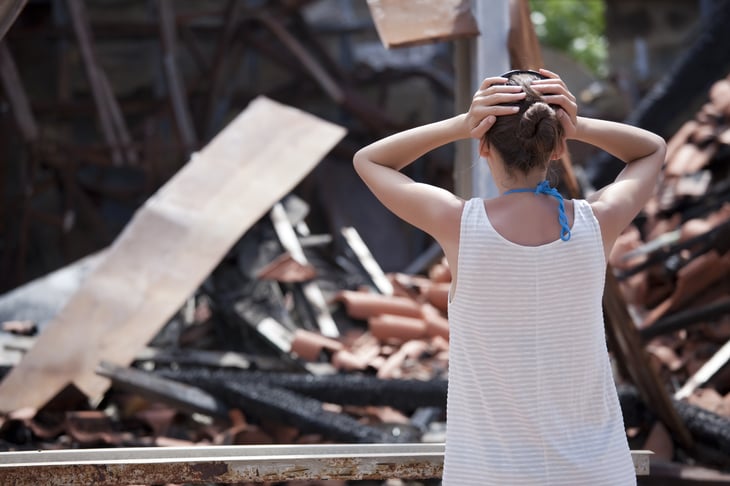
Editor's Note: This story originally appeared on Living on the Cheap.
With a regular torrent of severe weather events, ranging from hurricanes to wildfires, regularly hitting all parts of the United States, you may be interested in the best ways to prepare to keep yourself and your loved ones safe.
You shouldn’t sit around worrying all day about an unpredictable emergency, but you can take a few basic steps to prepare. Follow along to learn how to emergency-proof your home, keep communication alive when the power’s out and use your phone for a wide range of needs during an emergency. You don’t have to spend a fortune to help keep yourself and your family safe.
Follow government evacuation orders in any case, but if a hurricane, wildfire, or other disaster threatens your home, hunker down with these tips to stay as safe, comfortable, and in touch as possible.
Home disaster preparedness
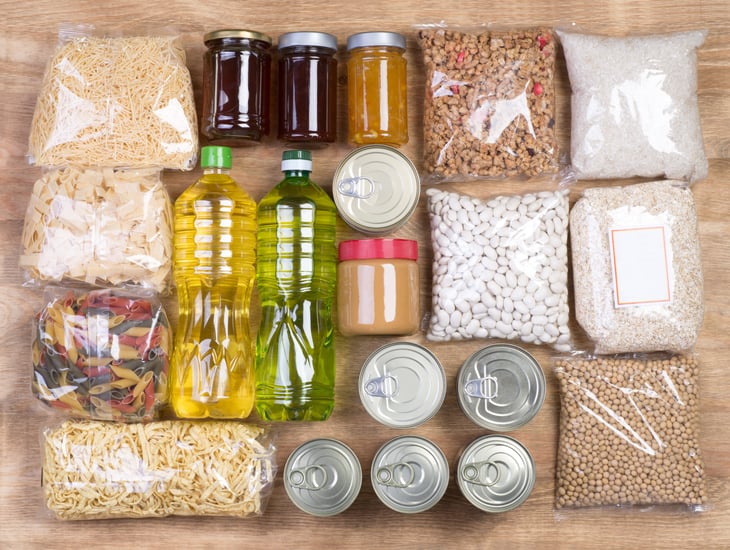
A home disaster kit should have a range of useful items including an ample supply of water, nonperishable foods, flashlights, spare batteries, and perhaps warm clothing if your climate calls for it. But beyond those basics, should you keep any tech tools at home to help in an emergency? Here are a few of the most helpful gadgets to have around the house as well.
Solar/crank-powered radio
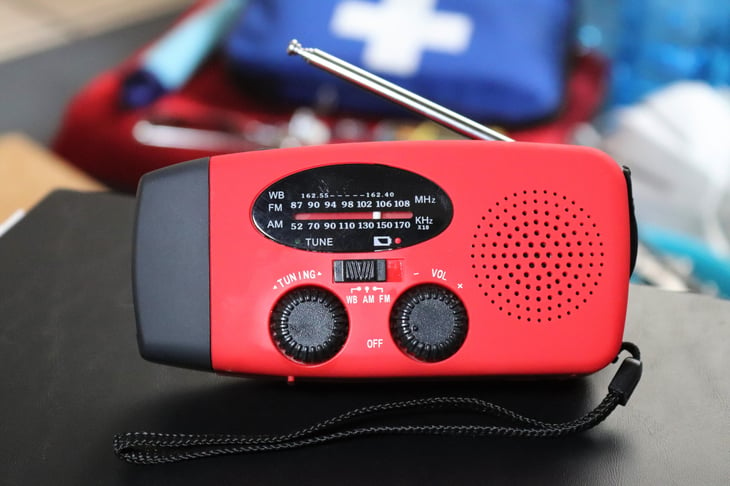
In my garage, we keep a radio that works without batteries or an external power source. This radio works with a hand crank or attached solar panels, is compact and portable, and even has a built-in flashlight. It picks up AM and FM radio frequencies as well as NOAA weather broadcasts. And, if you want, it also works with AAA batteries or a USB charger.
In any major emergency, you can usually get emergency information on local radio stations. During a major wildfire near my home, one station here went to 24/7 alerts and fire reporting. Even when the power was out, the radio station kept sharing important information related to the fire, later mudslides and flooding, and other vital emergency details.
Your smartphone
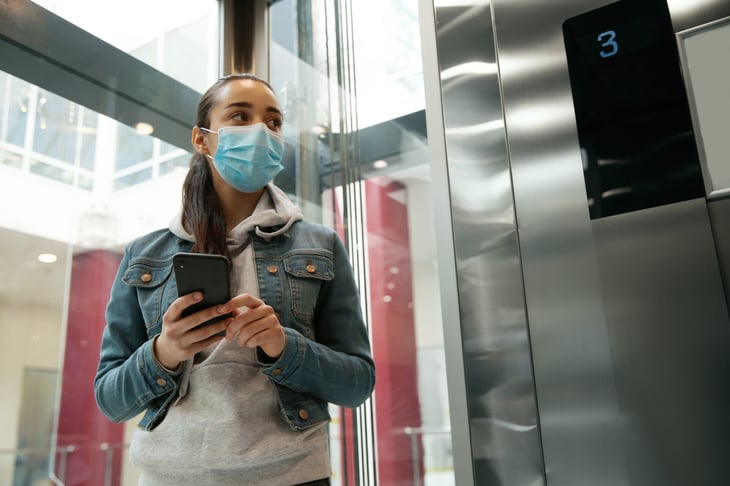
The same apps you use to show off what you’re having for dinner can be a lifeline in a hurricane or other disaster. When the massive Hurricane Harvey hit Houston in 2017, phone lines and power lines were submerged around the city, but cellular service remained active for the most part. Using apps like Twitter and Facebook, stranded individuals and families were able to reach out and get help from otherwise inundated emergency responders.
Your phone also has a flashlight, the ability to make 911 and other phone calls regardless of location, and many other useful features during an emergency. If you don’t already have one, keeping a power bank charged and ready to go as a backup will keep that phone powered up much longer than the internal battery alone. I’m a big fan of Anker power banks, but there are many good brands that offer what you should need for your phone.
Living on the Cheap founder Teresa Mears shared that after a South Florida hurricane, she found her phone charged very slowly from the car charger if the car wasn’t running. A high-speed power bank will get you up and running much faster.
Propane or charcoal grill and supplies
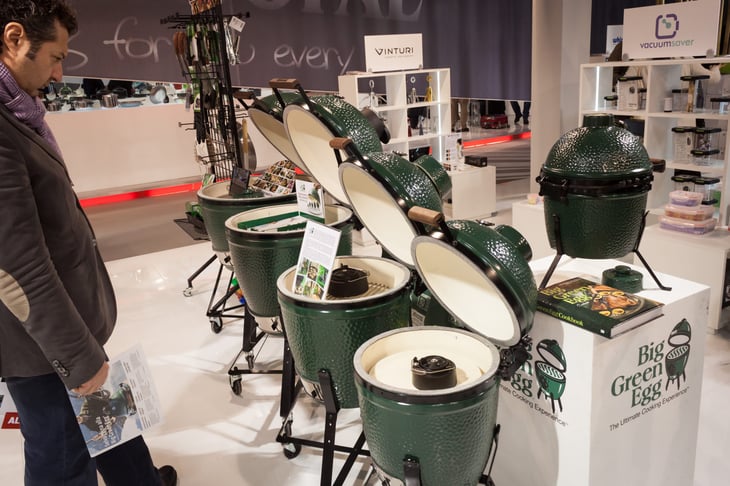
If the power’s out, your microwave, range, and other home cooking appliances may be down for the count as well. If you have a charcoal or propane grill, you can keep on cooking even without working utilities. Just be sure to NEVER use them indoors and always use them in well-ventilated areas to prevent asphyxiation. A backup propane tank or a few bags of charcoal should be plenty to help you make it through a few days.
Extra gas
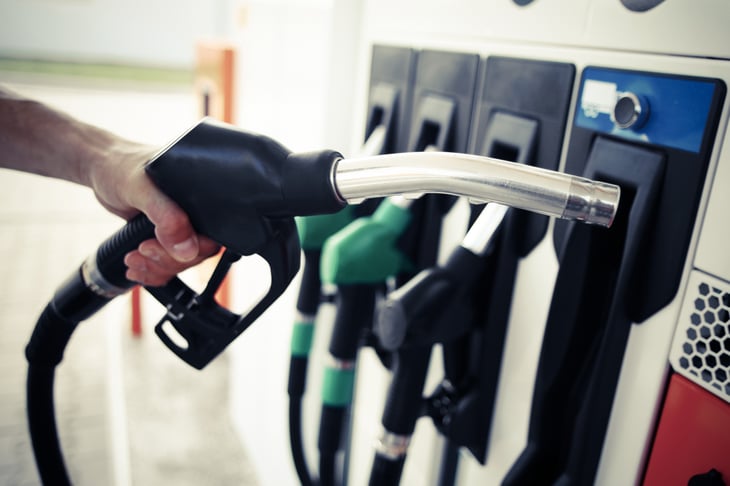
Fans of apocalyptic movies know that running out of gas is a major concern after a zombie invasion, alien attack, or natural disaster. Keep a gas can handy with at least a gallon or two just in case you need to refuel and the gas station’s power is out too.
Emergency cash
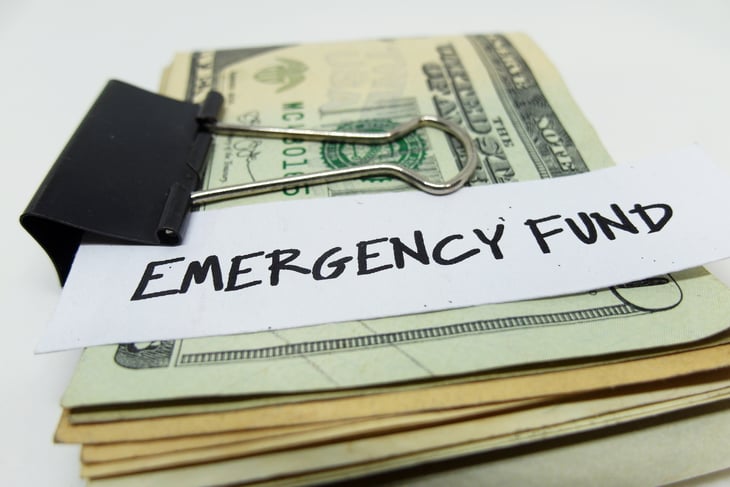
I’m a big fan of online banking, digital money transfers, and taking your entire financial life online. However, credit cards, debit cards, and online banking don’t do much good when the power’s out. You may need some actual cash money, and when the ATM is down, you’ll be stuck if you don’t have at least a few bucks at home.
Water supply
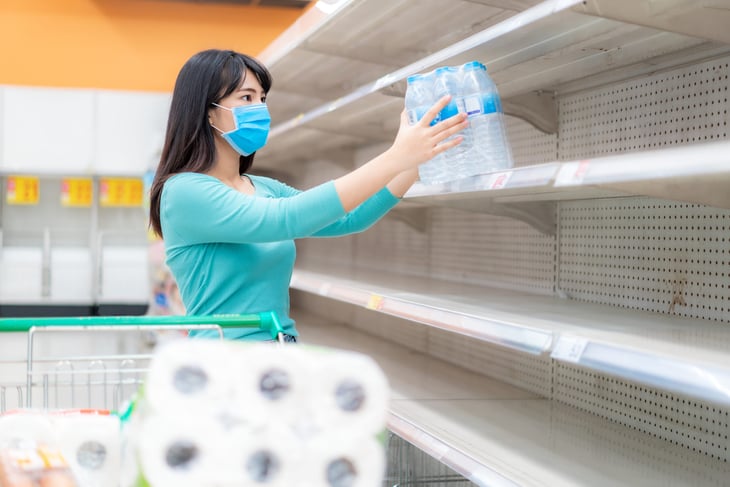
Speaking of water, don’t think just because it’s raining cats and dogs that you’ll have access to clean drinking water during a storm or other emergency. But you don’t have to spend money on bottled water. Just fill containers you already have before the storm or emergency hits. Filling plastic bags with water and freezing them upright has the additional benefit of helping to keep food cool if power goes out. If you plan to use your bathtub to store water for uses other than drinking, be sure that the drain seals tightly so the water doesn’t leak out.
Smartphone use for disasters
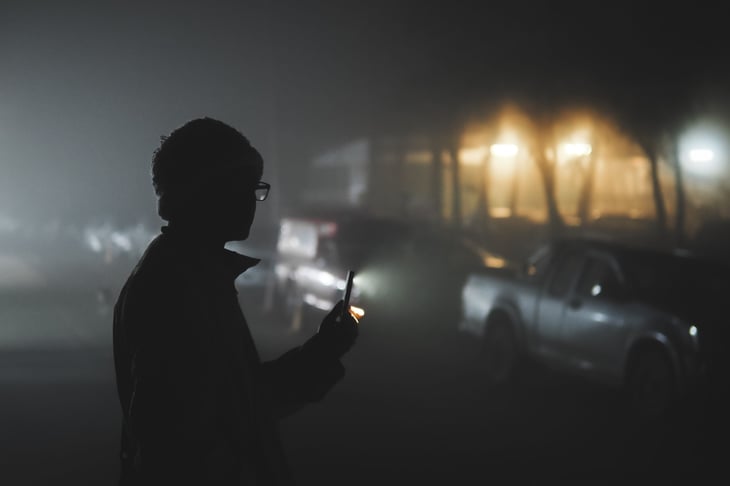
During any type of disaster, phone and internet service may not be readily available. Keeping a few communication apps handy in addition to your regular landline and cellular service might keep you connected. It’s possible you will only have internet service at some point, and some apps are very useful for communications with neighbors and emergency responders.
I have found Twitter and Nextdoor to be my best lines of communication and information in an emergency. There was a point when I had no phone service but the internet service on my phone was still running, so even though text messages were not going through, I still had information coming into my phone with up-to-the-minute detail.
Flashlight and camera
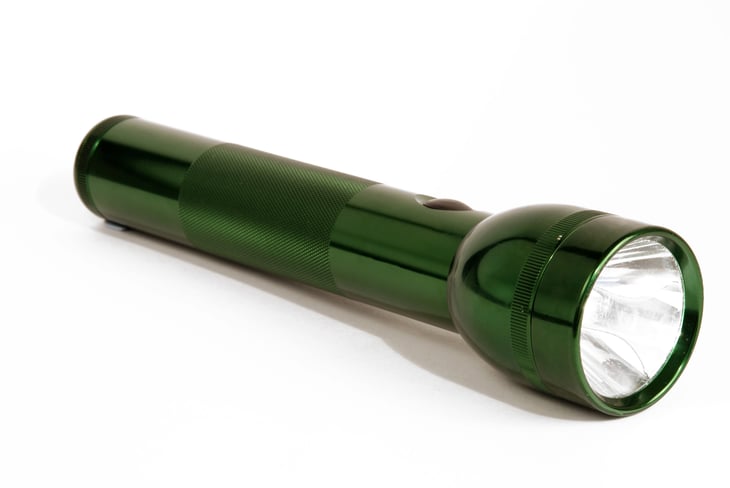
If you have a smartphone, it can also be used as a flashlight, but you can preserve your phone’s battery by using an old-fashioned flashlight instead. As for cameras: Insurers may want proof of damage to your home, vehicles, and property. It’s wise to take some photos during a disaster and on the way out to document what happened and when.
Nextdoor
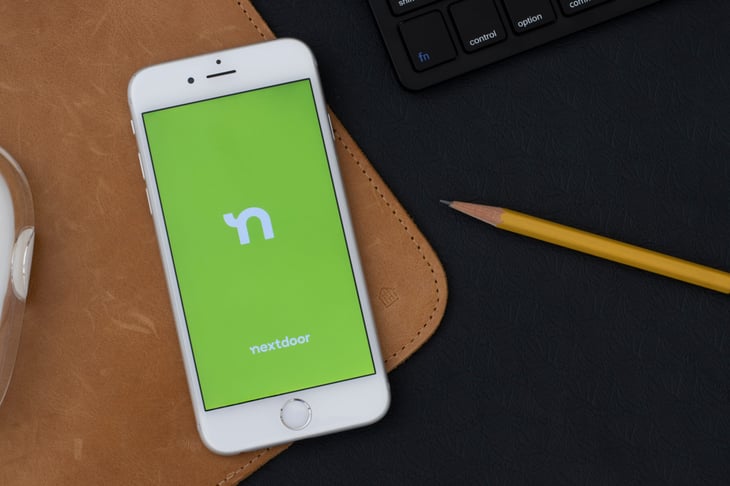
This app is kind of like Facebook for neighborhoods. Only verified neighbors who live in your neighborhood and city can see your profile. When I was worried that my block was on fire, someone on Nextdoor confirmed there was a fire on my block and which homes were affected. Neighbors on this app coordinated places to stay, meals, clothing, and other needs for those who had long evacuations and lost their homes.
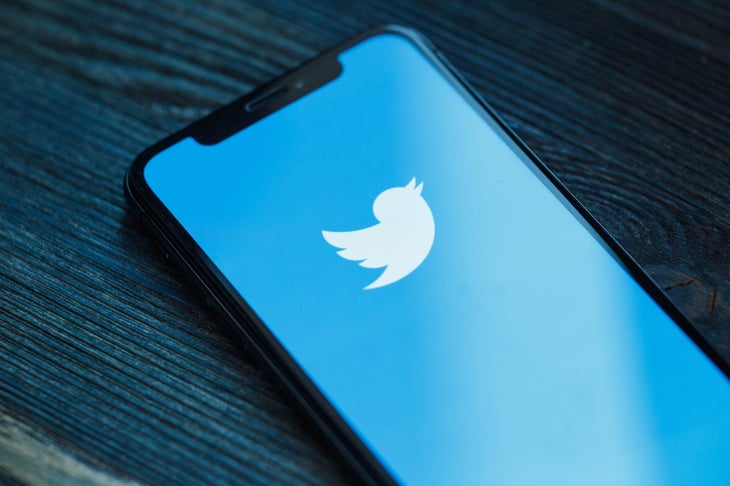
During the fire, a local neighbor with the username @VCscanner had more up-to-date information than the news. Follow relevant hashtags, accounts, and trending topics here to get instant information when available. Facebook is another good social network for disaster news, but the instant and short updates of Twitter make it more useful in an emergency.
FEMA mobile app
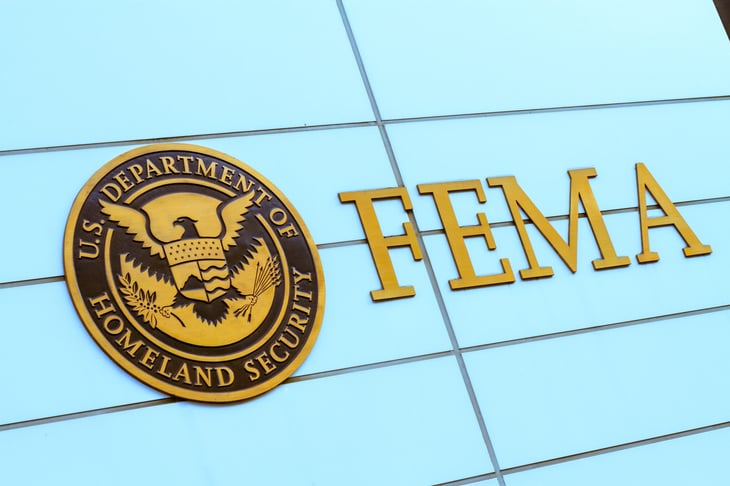
The Federal Emergency Management Agency, or FEMA, has a mobile app that includes alerts, disaster resources, and other useful information. With real-time alerts from FEMA and the National Weather Service, you may want to download this app far ahead of time just in case you need it.
Local government apps
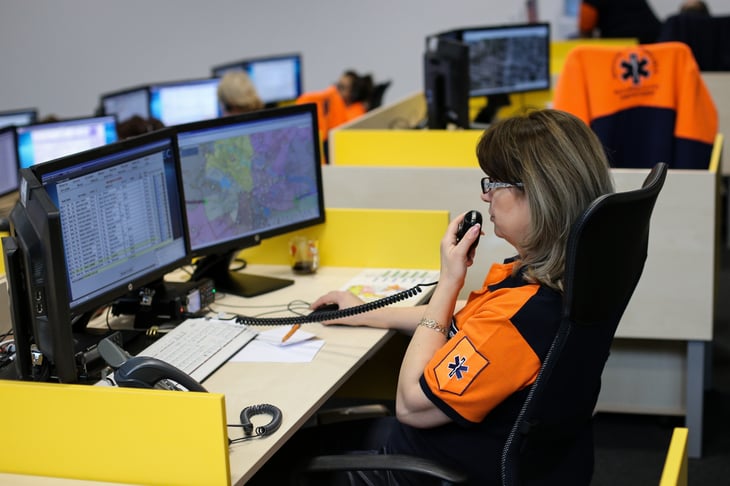
My county offers text alerts as a free emergency service, but some cities and counties have full Android and iOS apps that may be useful for emergency communications. Check out your city and county website (or both) to find out what resources you have available in your local area.
Always plan ahead
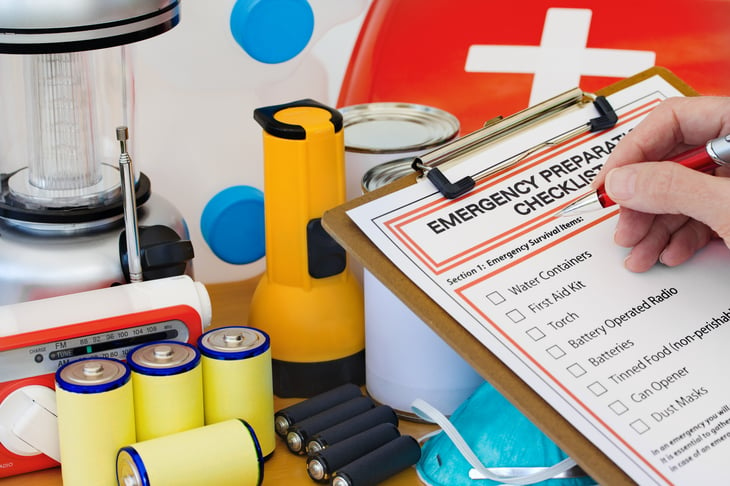
Back in my Boy Scout days, I earned the Emergency Preparedness Merit Badge and learned that the best way to respond to a disaster is to prepare in advance. Whether you live in an area prone to earthquakes, fires, floods, hurricanes, tornadoes, or any other disaster, you never know when disaster will strike. Getting ready in advance, keeping home and portable emergency supplies on standby, and staying apprised of local conditions will keep you safe in the most critical hours. Now stop reading and start preparing. Then you can rest easy that no matter what happens, you’re ready for it.






Add a Comment
Our Policy: We welcome relevant and respectful comments in order to foster healthy and informative discussions. All other comments may be removed. Comments with links are automatically held for moderation.